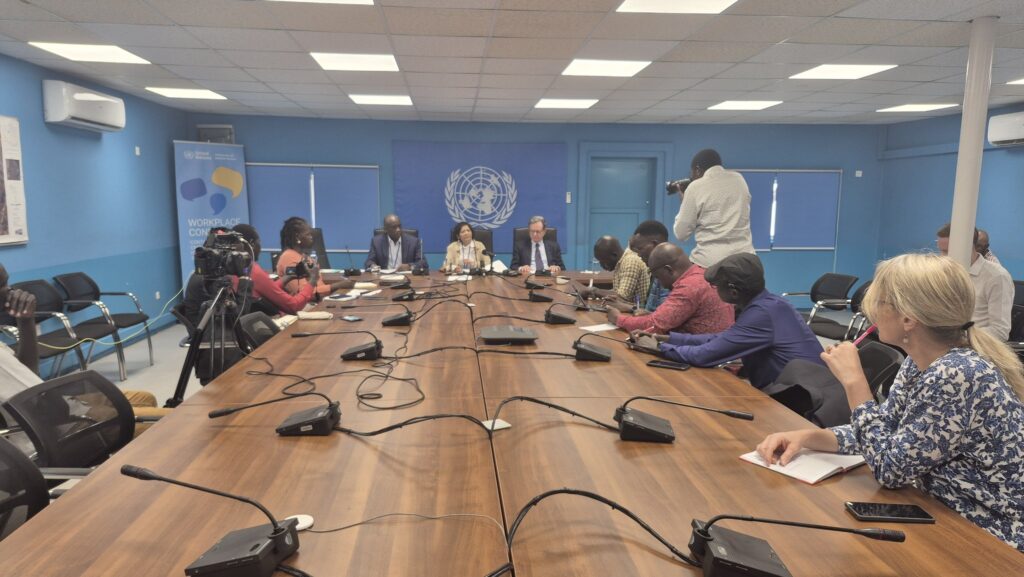Amid reports of escalating rights violations, the independent experts of the United Nations Commission on Human Rights in South Sudan on Thursday urged the government to fast-track the establishment of the Hybrid Court to ensure accountability.
Addressing a press conference on Thursday in Juba, commissioners voiced deep concern over the persistent human rights abuses in the country. They emphasized that addressing these violations requires a strong judicial system and the swift establishment of the Hybrid Court.
They said these violations include what they described as entrenched impunity given that there is no accountability for human rights violations and, absolutely no response, and complete absence of governance and basic services, particularly in the justice, health care, and education sectors, among others.
Barney Afako, a member of the Commission, said while the government has enacted the laws necessary for the establishment of the Commission for Truth, Reconciliation, and Healing and the Compensation and Reparation Authority, it is paramount to have the Hybrid Court.
“We have continued to emphasize the government obligation to make concrete moves on establishing the hybrid Court for South Sudan, given that accountability is an essential component of the transitional justice process,” he said. “You cannot have reconciliation and reparations without identifying the main perpetrators of the violence and violations.”
Afako added: “So, the next steps for the transitional justice program are what we have been focusing on in our engagements this week, including with the Ministry of Justice and Constitutional Affairs.”
He disclosed that the next step will be the selection of commissioners for the Commission for Truth, Reconciliation, and Healing and board members for the Compensation and Reparation Authority.
For her part, Yasmin Sooka, chairperson of the Commission, said it is a pity to see that even after more than a decade of independence, the Government of South Sudan has failed to provide basic services, and citizens continue to face the realities of sexual and gender-based violence.
“To be frank, I cannot believe that so many years after independence, we are still talking about government institutions failing the people. Impunity and lawlessness have been entrenched instead of upholding justice,” she said.
Sooka decried the fact that in Warrap State, the home of President Salva Kiir and other government leaders, the justice system remains at a very low level, with only one judge handling cases, with justice remaining elusive and inaccessible to the people.
She warned that such violations are not isolated but a symptom of a broader collapse, raising concern about the recent clashes between the SSPDF and SPLA-IO in Jur River County in Western Bahr el Ghazal State and Western Equatoria State.
“South Sudan’s violence, fueled by political actors and elite, has spread beyond traditional hotspots such as Western Equatoria and Unity states, fragmenting the nation,” she stated. “Just this month, we have seen direct clashes reported between SSPDF and SPLA-IO in Western Bahr el Ghazal.”
Sooka acknowledged the positive move by the government to pass the legislation to establish the Commission for Truth, Reconciliation, and Healing and the Compensation and Reparation Authority. She, however, highlighted the failure of the government to talk about the Hybrid Court.
“About the Hybrid Court, there is no talk on when that may be established, and it remains the subject of a Ping-Pong battle between the government and the African Union, with each waiting for the other to take action,” she said.




